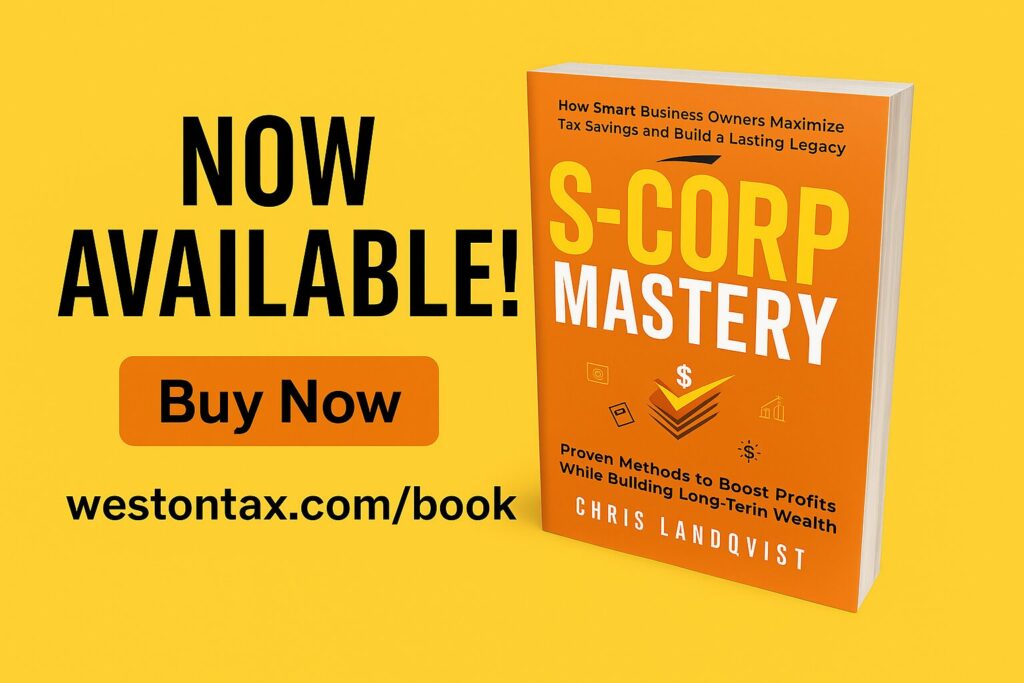There’s a new “tax hack” making the rounds on social media — and it’s dressed up in biblical language. Smooth-talking promoters promise that you can avoid income taxes, eliminate student loans, and protect your business from the IRS… all by calling it a church.
Sounds divine, right?
Unfortunately, what’s being sold as a “faith-based loophole” is nothing more than a modern tax scam — one that could land unsuspecting business owners in deep legal trouble. Let’s break down how this works, why it’s dangerous, and what you should do instead.
BTW… if you haven’t read my previous article about the newest scams out there… maybe it’s a good idea to start there.
Ok, now let’s press on.
The Promotors Pitch: “Operate as a Church”
The scam usually starts with a self-proclaimed “tax expert” who says they can make your business tax-exempt by registering it as a church or religious organization.
They claim the IRS “can’t define what a church is” — and that this “loophole” lets you label your LLC or small business as a ministry to avoid paying taxes.
In short, they tell you: “You don’t need an LLC or S-Corp. Just become a church. The IRS can’t touch you.”
At first glance, this might sound plausible. The First Amendment protects religious freedom. The IRS doesn’t have a strict, one-size-fits-all definition of what a “church” is.
Instead, they use what’s called a “facts and circumstances” test — meaning they look at how an organization actually operates.
This is where the scammers twist reality. They exploit a gray area in the tax code to push illegal strategies that will, sooner or later, backfire.
What the IRS Actually Looks For
Let’s clear the air.
The IRS doesn’t “ban” churches or religious groups from operating tax-free — but they do require legitimate religious organizations to follow strict operational guidelines.
To be considered a church under Section 501(c)(3) of the Internal Revenue Code, an organization must be organized and operated exclusively for religious purposes. It also cannot distribute profits to individuals or private shareholders.
That last part is crucial.
If your “church” is also paying for your mortgage, your Tesla, and your business expenses, the IRS will call that what it is: personal benefit — and that’s illegal under 501(c)(3) law.
The real standard comes down to this: Does the organization operate to advance religion, or does it operate for personal gain?
The IRS has a list of 14 characteristics it often uses to evaluate whether an organization qualifies as a church — including things like regular worship services, an established congregation, ordained ministers, and recognized religious doctrine.
So, while it’s true there’s no one-sentence legal definition of “church,” that doesn’t mean you can make up your own. The IRS looks at substance over form — how you actually operate — not what you call yourself.
The “Benefits” They Promise — and Why They’re a Trap
Let’s look at what these scammers claim — and why each point collapses under scrutiny.
1. “You can run your business tax-free.”
False. Even legitimate 501(c)(3) churches cannot operate for the purpose of generating private profit. Any income you take personally becomes taxable. In other words, your so-called “church business” cannot pay you a salary, buy your car, or fund your personal living expenses without triggering serious tax consequences.
2. “The IRS can’t touch you because it’s a church.”
Also false. Churches may be exempt from filing annual returns like Form 990, but they are not exempt from investigation. The IRS has clear authority under IRC Section 7611 to audit churches when there’s evidence of abuse or private benefit.
3. “You can get rid of IRS debt or student loans.”
Absolutely false. Debt forgiveness through fake religious entities is tax evasion, not salvation. The IRS and Department of Education both treat this as fraudulent misrepresentation, punishable by fines, restitution, and imprisonment.
These promoters often mix half-truths with buzzwords like “sovereign citizen,” “trust law,” or “religious immunity” to sound legitimate. But at the end of the day, these are marketing ploys targeting desperate business owners who want relief from taxes or debt.
How the Scam Actually Works
Typically, the promoter sets up a “church entity” — often through a nonprofit filing or a private trust. They’ll then instruct you to funnel your business revenue into that entity, calling it a “donation” or “tithe.”
On paper, it looks like your for-profit business is donating to a religious organization. In practice, however, it’s just income laundering — moving money from one pocket to another.
They’ll even encourage you to sign “minister” documents or hold mock church services in your living room to make it seem legitimate.
But here’s the thing: The IRS doesn’t judge you by your words. They judge you by your actions.
If you’re not holding regular services, if you have no congregation, no religious mission, and no legitimate governance structure — it’s not a church. It’s a sham organization.
And when the IRS catches on (and they always do, eventually), the penalties are severe.
The Backlash: How These “Church” Scams End
For a while, these schemes can appear to “work.” You’ll see social media posts of people bragging that they “legally stopped paying taxes.” Some even boast of living lavishly under their “church’s umbrella.”
But just because the IRS hasn’t come knocking yet doesn’t mean you’re safe.
The IRS isn’t a speedboat — it’s a cruise ship. It takes time to turn, but once it’s facing your direction, it doesn’t stop. When they finally catch up, the consequences come in waves.
We’ve seen cases where people were hit with:
- Back taxes plus interest and penalties
- Civil fraud charges
- Revocation of nonprofit status
- Federal prison sentences
In 2023 alone, the IRS Criminal Investigation Division pursued hundreds of cases involving fraudulent religious filings. Many of these promoters claimed “sovereign religious freedom” as a defense — and it didn’t work.
Once the IRS determines that a so-called church was really a vehicle for tax evasion, it’s game over. You’ll owe everything you should have paid, plus fines that can double the amount. In extreme cases, federal prosecutors step in under Title 26 U.S. Code §7201 — tax evasion — which carries up to five years in prison.
Why the Scam Persists
The “church loophole” isn’t new. It’s a recycled scam that surfaces every few years, always packaged as something “the wealthy don’t want you to know.”
Scammers prey on two things: financial pain and distrust of the system.
When business owners feel overtaxed, they become easy targets for anyone offering an escape. Combine that with America’s deeply rooted respect for religion, and you get the perfect storm: a con that sounds patriotic, spiritual, and smart all at once.
But make no mistake — the wealthy don’t use fake churches. They use legitimate tax strategies… legal tools that are recognized by the IRS and backed by decades of case law. They require strategy, not secrecy.
The Real Cost of “Tax-Free” Religion
Let’s imagine you try this. You set up a “church,” move your consulting income there, and stop filing taxes. You feel clever — even liberated.
Then, three years later, you get a letter from the IRS: Notice of Examination — Church Audit Division. I know… this is meant to make you chuckle a little. But make no mistake about it. If enough people start employing this type of strategies and there is enough taxes to justify the means –> the IRS will create a specific division for it.
Now you’re facing not only back taxes, but penalties for fraud and misrepresentation. Your bank accounts are frozen. Your business reputation is gone. Your accountant refuses to represent you.
It’s not just money you lose — it’s credibility, peace of mind, and possibly your freedom.
The true irony?
Even if your “church” were legitimate, you couldn’t personally benefit from it. You couldn’t take profits or buy personal assets. The whole premise — that you can run your business tax-free and still live off the proceeds — contradicts the very definition of a tax-exempt organization.
So the question becomes: Is risking everything worth chasing a fantasy loophole?
If your goal is to reduce taxes legally, you don’t need to disguise your business as a church. You need a structure — and a strategy — that aligns with your goals.
That’s where legitimate tax planning comes in. True wealth-building doesn’t come from hiding income. It comes from understanding how the system works — and positioning yourself within it.
How to Protect Yourself from Scams
If someone promises you “no taxes forever,” “sovereign immunity,” or “religious exemption for your business,” take it as a red flag. Real professionals — CPAs, enrolled agents, and tax attorneys — never use those phrases.
Here’s how to spot legitimate advisors versus scammers:
- Credentials: Look for professionals governed by Circular 230 (the IRS’ code of conduct for tax professionals).
- Transparency: Legitimate strategists disclose both benefits and risks. Scammers only tell you what you want to hear.
- Process: Real tax planning involves documentation, filings, and compliance — not secret trusts or hidden contracts.
- Guarantees: If someone “guarantees” you’ll never pay taxes again, run.
Remember: The IRS rewards strategy, not secrecy. Compliance is what gives you protection, not pretending the rules don’t apply.
The Takeaway: The Cruise Ship Always Turns Around
In the short run, scams like the “church entity” scheme seem clever — even empowering. They promise freedom from taxes, debt, and government oversight. But they’re built on sand.
Eventually, the IRS — that massive, slow-moving cruise ship — turns its bow in your direction. And when it does, it doesn’t swerve. It doesn’t slow down.
By then, it’s too late to jump ship.
If you’re a business owner trying to do the right thing, remember this: the tax code isn’t your enemy. It’s your instruction manual for building wealth.
Use it wisely, and it becomes your greatest ally. Abuse it, and it becomes the rope you hang your financial future with.
Welcome to the New Age of Accounting. Let’s begin.
P.S. If you found this article helpful, you’ll love my new book S-Corp Mastery: How Smart Business Owners Maximize Tax Savings & Build a Lasting Legacy. It’s now live and available in a sleek, easy-to-read PDF version. Grab your copy here.

Chris is the Managing Partner at Weston Tax Associates, a best-selling author, and a renowned tax strategist. With over 20 years of expertise in tax and corporate finance, he simplifies complex tax concepts into actionable strategies that drive business growth. Originally from Sweden, he now lives in Florida with his wife and two sons.











